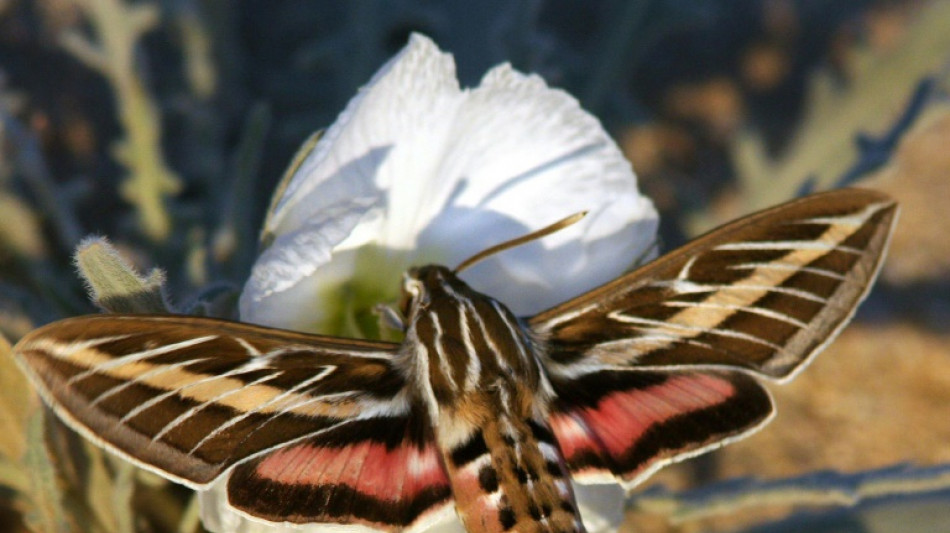
-
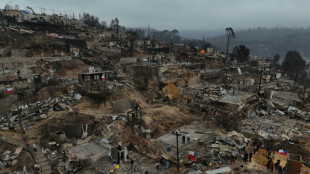 Chile police arrest suspect over deadly wildfires
Chile police arrest suspect over deadly wildfires
-
Djokovic eases into Melbourne third round - with help from a tree

-
 Keys draws on champion mindset to make Australian Open third round
Keys draws on champion mindset to make Australian Open third round
-
Knicks halt losing streak with record 120-66 thrashing of Nets

-
 Philippine President Marcos hit with impeachment complaint
Philippine President Marcos hit with impeachment complaint
-
Trump to unveil 'Board of Peace' at Davos after Greenland backtrack

-
 Bitter-sweet as Pegula crushes doubles partner at Australian Open
Bitter-sweet as Pegula crushes doubles partner at Australian Open
-
Hong Kong starts security trial of Tiananmen vigil organisers

-
 Keys into Melbourne third round with Sinner, Djokovic primed
Keys into Melbourne third round with Sinner, Djokovic primed
-
Bangladesh launches campaigns for first post-Hasina polls

-
 Stocks track Wall St rally as Trump cools tariff threats in Davos
Stocks track Wall St rally as Trump cools tariff threats in Davos
-
South Korea's economy grew just 1% in 2025, lowest in five years

-
 Snowboard champ Hirano suffers fractures ahead of Olympics
Snowboard champ Hirano suffers fractures ahead of Olympics
-
'They poisoned us': grappling with deadly impact of nuclear testing
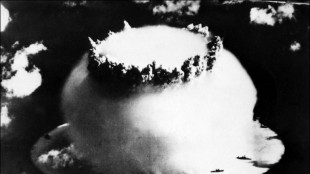
-
 Keys blows hot and cold before making Australian Open third round
Keys blows hot and cold before making Australian Open third round
-
Philippine journalist found guilty of terror financing

-
 Greenlanders doubtful over Trump resolution
Greenlanders doubtful over Trump resolution
-
Real Madrid top football rich list as Liverpool surge

-
 'One Battle After Another,' 'Sinners' tipped to top Oscar noms
'One Battle After Another,' 'Sinners' tipped to top Oscar noms
-
Higher heating costs add to US affordability crunch
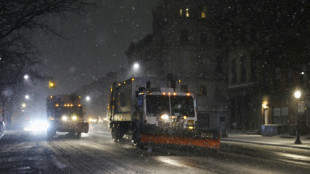
-
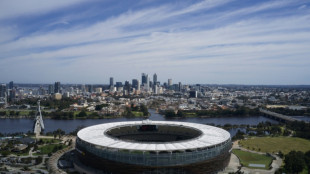 Eight stadiums to host 2027 Rugby World Cup matches in Australia
Eight stadiums to host 2027 Rugby World Cup matches in Australia
-
Plastics everywhere, and the myth that made it possible
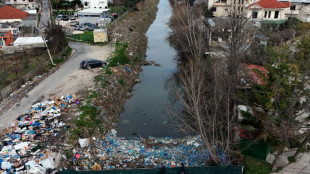
-
 Interim Venezuela leader to visit US
Interim Venezuela leader to visit US
-
Australia holds day of mourning for Bondi Beach shooting victims

-
 Liverpool cruise as Bayern reach Champions League last 16
Liverpool cruise as Bayern reach Champions League last 16
-
Fermin Lopez brace leads Barca to win at Slavia Prague

-
 Newcastle pounce on PSV errors to boost Champions League last-16 bid
Newcastle pounce on PSV errors to boost Champions League last-16 bid
-
Fermin Lopez brace hands Barca win at Slavia Prague

-
 Kane double fires Bayern into Champions League last 16
Kane double fires Bayern into Champions League last 16
-
Newcastle pounce on PSV errors to close in on Champions League last 16

-
 In Davos speech, Trump repeatedly refers to Greenland as 'Iceland'
In Davos speech, Trump repeatedly refers to Greenland as 'Iceland'
-
Liverpool see off Marseille to close on Champions League last 16

-
 Caicedo strikes late as Chelsea end Pafos resistance
Caicedo strikes late as Chelsea end Pafos resistance
-
US Republicans begin push to hold Clintons in contempt over Epstein

-
 Trump says agreed 'framework' for US deal over Greenland
Trump says agreed 'framework' for US deal over Greenland
-
Algeria's Zidane and Belghali banned over Nigeria AFCON scuffle

-
 Iran says 3,117 killed during protests, activists fear 'far higher' toll
Iran says 3,117 killed during protests, activists fear 'far higher' toll
-
Atletico frustrated in Champions League draw at Galatasaray

-
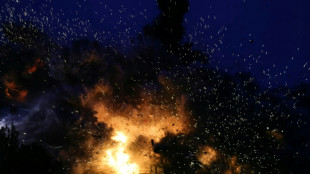 Israel says struck Syria-Lebanon border crossings used by Hezbollah
Israel says struck Syria-Lebanon border crossings used by Hezbollah
-
Snapchat settles to avoid social media addiction trial

-
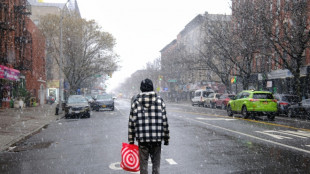 'Extreme cold': Winter storm forecast to slam huge expanse of US
'Extreme cold': Winter storm forecast to slam huge expanse of US
-
Jonathan Anderson reimagines aristocrats in second Dior Homme collection
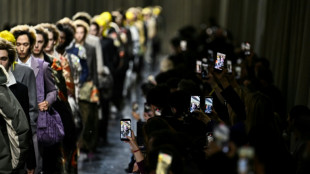
-
 Former England rugby captain George to retire in 2027
Former England rugby captain George to retire in 2027
-
Israel launches wave of fresh strikes on Lebanon
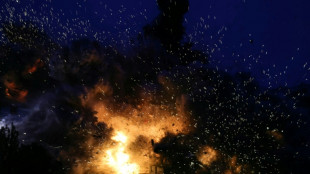
-
 Ubisoft unveils details of big restructuring bet
Ubisoft unveils details of big restructuring bet
-
Abhishek fireworks help India beat New Zealand in T20 opener

-
 Huge lines, laughs and gasps as Trump lectures Davos elite
Huge lines, laughs and gasps as Trump lectures Davos elite
-
Trump rules out 'force' against Greenland but demands talks

-
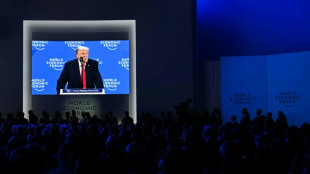 Stocks steadier as Trump rules out force to take Greenland
Stocks steadier as Trump rules out force to take Greenland
-
World's oldest cave art discovered in Indonesia
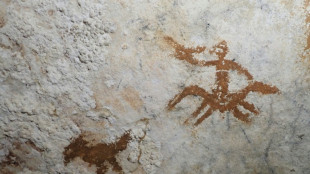

Noxious fumes at night aren't a pollinating moth's delight
Certain plants have flowers that open only in the evening, and depend on nocturnal pollinators such as moths to thrive.
But a new paper published in Science on Thursday finds an atmospheric pollutant that is much more prevalent at night drastically reduces the fluttering creatures' ability to track floral scents.
It adds to a growing understanding of how human activities, including not just air but also light and noise pollution, are negatively impacting the natural world.
"Our impacts on the environment are affecting human health, etc, that we tend to concentrate on, but they're also affecting ecosystem functioning through these plants and pollinators," senior author Jeff Riffell, a biology professor at the University of Washington, told AFP.
Riffell said the role of nitrate radicals (NO3) on flower scents hadn't been well studied, because the chemical is around at night and prior research focused on the impacts of pollution on daytime pollinators like bees.
Nitrate radicals form when nitrogen dioxide reacts in the atmosphere with ozone -- both of which come from burning fossil fuels, and have natural sources too.
Unlike nitrogen dioxide and ozone, however, nitrate radicals rapidly degrade in sunlight, making them virtually absent in daytime.
For their study, Riffell and colleagues chose the pale evening primrose (Oenothera pallida), a wildflower that grows in arid settings across the western United States.
Its white flowers emit a strong, piney scent that attracts the white-lined sphinx moth (Hyles lineata) and the tobacco hawk moth (Manduca sexta), species which use their powerful antennae to sniff out pollen from miles away.
- Pollinator crisis -
First, the team chemically analyzed the wildflower's scent to unravel its chemical recipe, revealing a complex bouquet of chemicals.
Next, they separated out the individual chemicals and exposed them one at a time to the moths, to determine exactly which ones were responsible for attracting the winged insects.
This revealed a subset of the chemicals, known as monoterpene compounds, were largely responsible for the scent, and further tests showed that nitrate radicals decimated the levels of these compounds.
Finally, the team carried out wind tunnel experiments involving the moths and the scent chemicals that they emitted at controlled levels from a fake flower.
"What we found is that the moths really were very sensitive to the flower scent and would kind of navigate upwind and try to feed from this artificial flower," said Rifell.
"But if we added NO3, then all of a sudden, for one species of moth, it totally eliminated their ability to recognize the flower. And for another species, it reduced their attraction to the flower by 50 percent."
The nitrate radicals were comparable to those found at night in a typical urban environment, modeled on Seattle. When the team ran the experiment with the pollutants typically present during the day, they saw far less of an impact.
Overall, the experiment revealed a strong impact on pollination activity, at a time when the world's pollinators are in crisis.
Around three-quarters of the more than 240,000 species of flowering plants depend on pollinators, and over 70 pollinator species are endangered or threatened, said Rifell.
The team also ran computer simulations to determine which parts of the world would be most likely to experience problems as a result of this effect.
Areas identified include much of Europe, the Middle East, Central and South Asia, and southern Africa.
"Outside of human activity, some regions accumulate more NO3 because of natural sources, geography and atmospheric circulation," said co-senior author Joel Thornton, a professor of atmospheric sciences.
"But human activity is producing more NO3 everywhere. We wanted to understand how those two sources — natural and human — combine and where levels could be so high that they could interfere with the ability of pollinators to find flowers."
K.Sutter--VB




